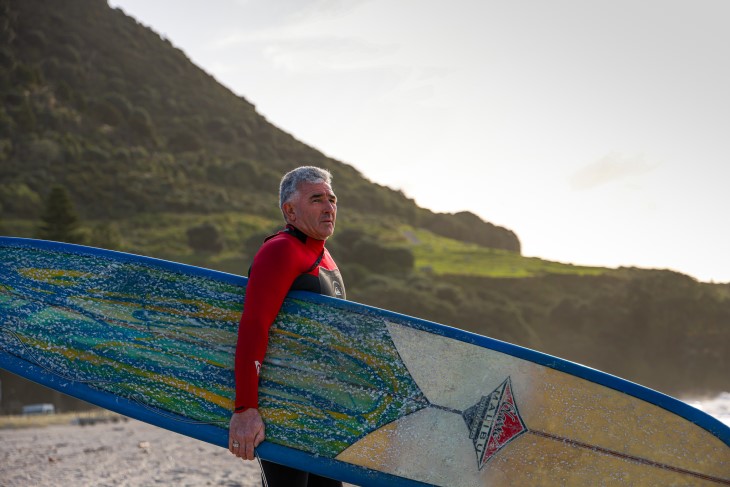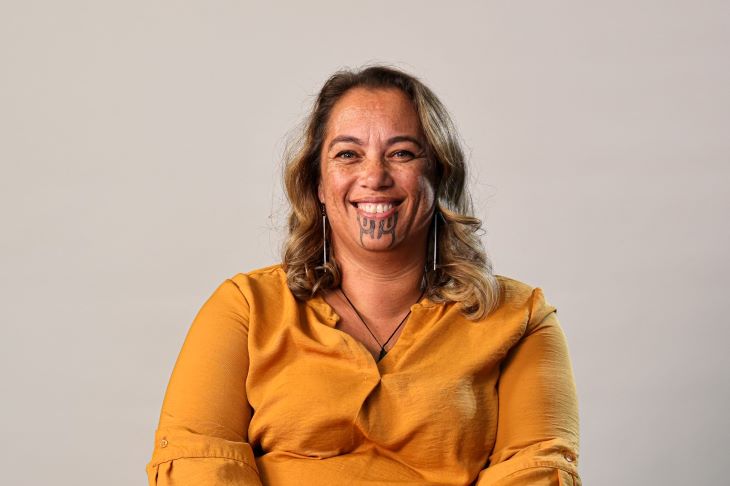Te Rina’s story: ‘I struggled behind closed doors’
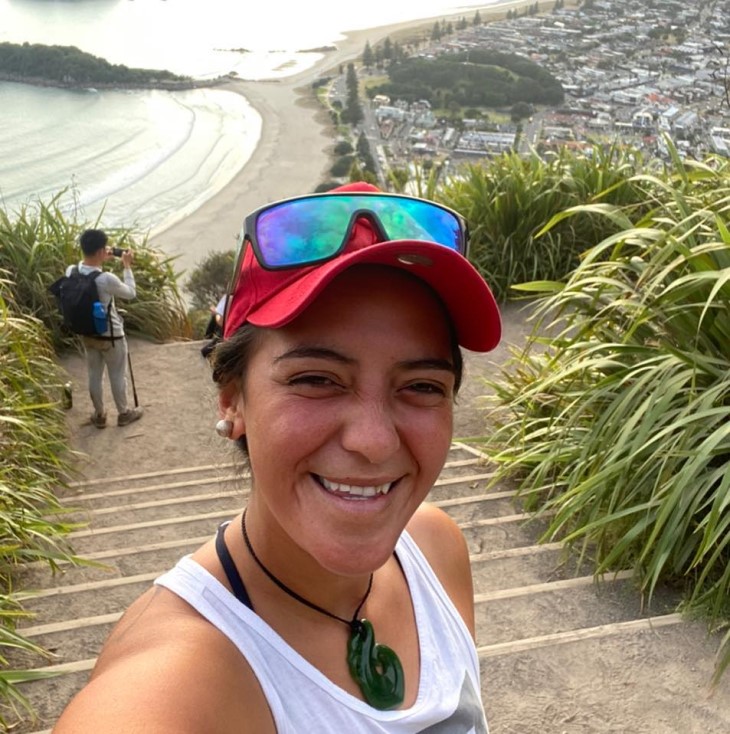
Te Rina Ruru-Pelasio is the Māori Development Manager for ABI Rehabilitation. She has first-hand experience of the trauma that can be caused if whānau don’t receive culturally appropriate care.
Trigger warning – this article contains references to suicidal tendencies and self-harm.
When the older brother of Te Rina Ruru-Pelasio (Ngāti Kahu ki Whangaroa, Te-Aitanga-a-Mahaaki, Airani/Ireland) had a life-changing injury, it was not just him who suffered.
Te Rina and her whānau also went through a huge amount of trauma, with several suffering from mental health issues as they struggled to cope.
“I was 16 when Ray had his accident and I’d never even heard of the term ‘young carer’,” Te Rina says.
“I didn’t realise I would become one as, like the rest of my whānau, I stepped into that caregiver and advocate role.”
Being thrust into a position of such responsibility at a young age did some alarming damage.
“As a result of the trauma, I began to self-harm and often contemplated suicide,” Te Rina admits.
“Mentally and emotionally, I struggled behind closed doors while everyone else saw a smile.”
Raymond Ruru sustained a severe traumatic brain injury (TBI) from a motor vehicle accident in 2007. He uses a wheelchair, communicates through an alphabet board and requires 24-hour care.
He spent three months in hospital, five months at a rehabilitation unit and is now receiving home care and support services.
“As a whānau, we weren’t aware of the impact of the trauma and the overwhelming feelings of guilt and grief as we attempted to navigate this journey,” Te Rina says.
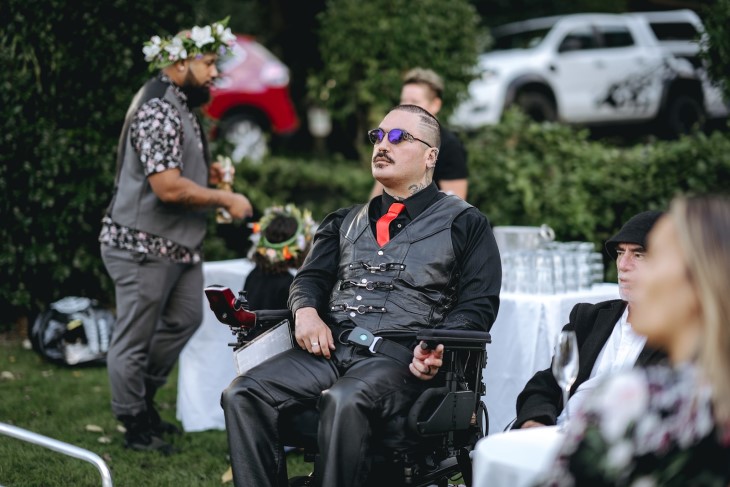
Raymond Ruru's traumatic brain injury (TBI) greatly changed the lives of he and his whānau.
Let down by lack of cultural awareness
What made the whānau’s journey through Ray’s rehabilitation even worse was that many of the health providers they dealt with were not aware of the concept of cultural safety.
The idea behind cultural safety is for patients and their whānau to be treated in a culturally appropriate way.
Te Rina knows only too well the problems which can arise when that’s not the case.
“Occasionally, we were asked if we had any cultural needs but the words are difficult to find when you’re going through a traumatic event, and your culture, values and principles are embedded in you in an indescribable way,” she says.
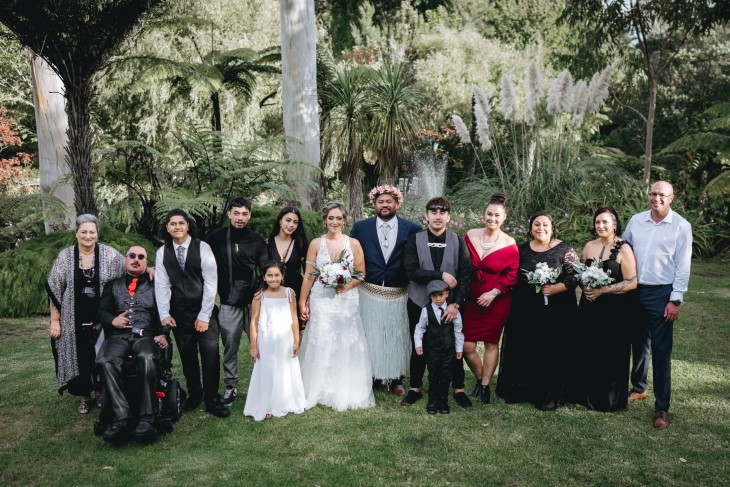
Te Rina with Raymond and her whānau on her wedding day.
‘It was a constant battle’
Unfortunately, Te Rina wasn’t the only member of her family to suffer as a result of their treatment.
“It became a constant battle for my mum as she advocated for our cultural needs as Māori,” she says.
“Instead of feeling seen, we were often labelled as ‘difficult’ and lumped into a category that all Māori are the same – the provider didn’t ask questions or try to understand us as a whānau.
“We experienced unconscious bias as Māori, were spoken down to, judged for our attire or what our home was like. It often felt like providers were withholding information and we had to push to find things out.”
The consequences of this very nearly tore the whānau apart.
“As a young carer, I saw the impact of the trauma on my mum, who was suicidal twice due to exhaustion, stress and what she felt was constant bullying by home care and support services,” Te Rina says.
“I watched my older sister crash and burn, and my brother struggle as he tried to regain his mana motuhake (independence). My niece, who also became a young carer, began to self-harm and struggle with suicidal tendencies eight years after the accident.
“If a health provider had delivered care that aligned with our mātāpono (principles) with a holistic approach then perhaps our journey would not have been so heartbreaking.”
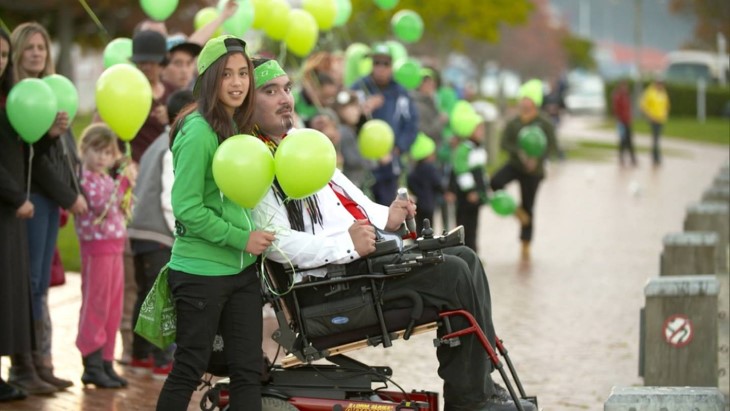
Raymond Ruru with his daughter Dyani at a brain injury awareness event organised by his whānau, who set up the New Zealand Brain Injury Support Network.
The importance of whānau
Te Rina believes a lack of understanding around the importance of whānau to Māori is often at the heart of such problems.
“Providers often separate the kiritaki (client) from whānau in their terminology. But from a te ao Māori (Māori world) perspective, we are one,” she says.
“I understand there may be complex situations where this isn’t the case but for us it was. It was important for us that the provider was transparent, included us in their decision-making and understood that having whānau around was healing for Ray and important for his wairua (spirituality).
“This diminishment of our mauri and mana left our whānau feeling isolated and overwhelmed. It largely contributed to the detrimental emotional and mental impacts of this journey.”
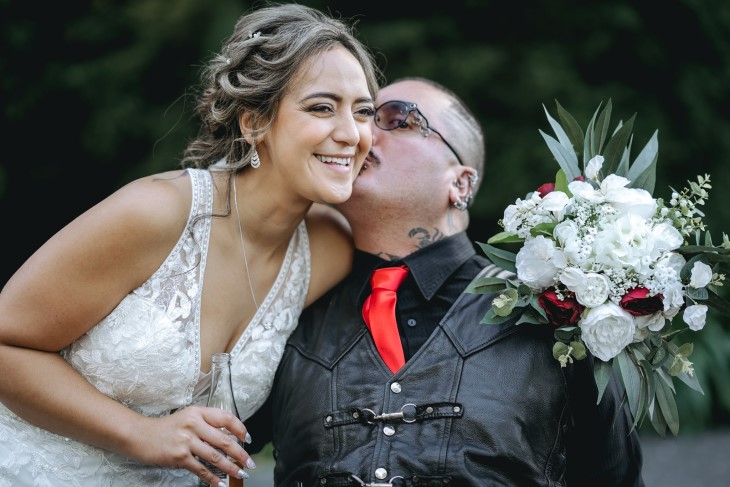
Te Rina shares a special moment with Raymond at her wedding.
A passion born from trauma
As a result of what she and her whānau went through, Te Rina has a deep passion for doing all she can to improve cultural safety in the healthcare system.
She is the Māori Development Manager for ABI Rehabilitation – who provide TBI and stroke rehabilitation services – and is doing some important mahi in this area.
Building on some impressive work ABI had already done, Te Rina was responsible for the development of Te Hekenga-ā-ora – the organisation’s Māori Development Plan which was launched last August.
“The approach we’ve taken to cultural safety is weaving mātauranga Māori expertise with the lived experience of whānau Māori and what’s important to them,” she explains.
“By reviewing the kiritaki and whānau journey through ABI services, we were able to identify key areas that needed to be improved to ensure it was a culturally safe journey.”
The key to bringing this mahi to life has been focusing on training ABI’s kaimahi (workforce) to ensure they have an understanding of te ao Māori and can feel confident in delivering a culturally safe journey.
“This began by creating a safe space where they can learn, grow and reflect on their interactions with whānau Māori,” Te Rina says.
“The implementation of Te Hekenga-ā-ora has also helped us attract and retain more kaimahi Māori as they’re excited about the direction we’re headed in. The feedback from our kaimahi has been overwhelmingly positive as they feel safe and supported in their learning.”
Putting the plan into practice
As well as providing professional development for its kaimahi, ABI Rehabilitation has taken many other practical steps to improve the level of cultural safety in its patient care.
It’s established kaiarahi kaupapa Māori (cultural liaison) roles within each of its services, and developed partnerships with registered rongoā Māori (traditional healing) practitioners to reduce barriers for kiritaki to use rongoā in their rehabilitation.
A Mātauranga Māori Advisory Rōpū has also been established, which is made up of the kaiarahi kaupapa Māori members, and others with mātauranga Māori expertise and lived experience.
This rōpū is overseeing the implementation of Te Hekenga-ā-ora, providing advice and guidance on projects and clinical governance, and cultural supervision to the kaiarahi kaupapa Māori team.
“Providers can’t expect a kiritaki or their whānau to guide them on this journey when they’re likely just trying to keep their heads above water,” Te Rina says.
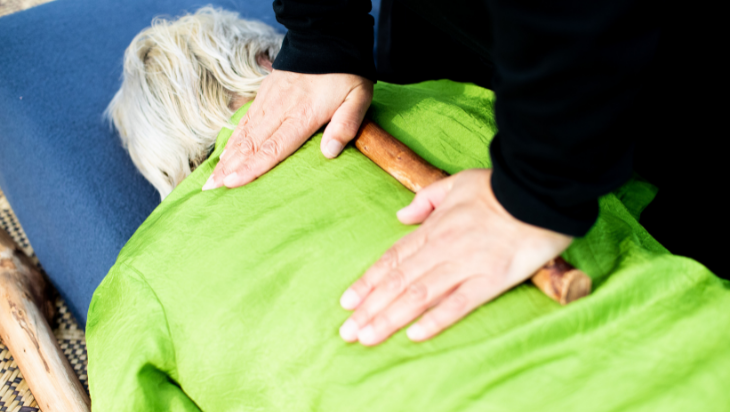
ABI works with rongoā Māori practitioners so kiritaki can use rongoā in their rehabilitation.
Taking an authentic approach
“Cultural safety is the responsibility of the whole organisation at every level. The key is authenticity and readiness for change,” Te Rina says.
“Improving cultural safety is a journey, it can’t be tokenistic or made up of quick wins. It begins with critically looking inward into your organisation at every level and preparing the environment for transformational change.”
ABI has established a Mauri Ora training and development programme to support its kaimahi in understanding important areas when engaging with whānau Māori – ngā mātāpōno, Te Whare Tapa Whā and key concepts of mauri. To date, 130 of their kaimahi have completed this training.
“A provider and its cultural safety strategy is only as strong as the people delivering it – which takes us back to those interactions with whānau. In order for any change to be sustainable, there must be a solid foundation through training and understanding,” Te Rina says.
“A safe space needs to be provided to support kaimahi to have those courageous discussions around taking ownership and learning from any unconscious biases they may hold.”
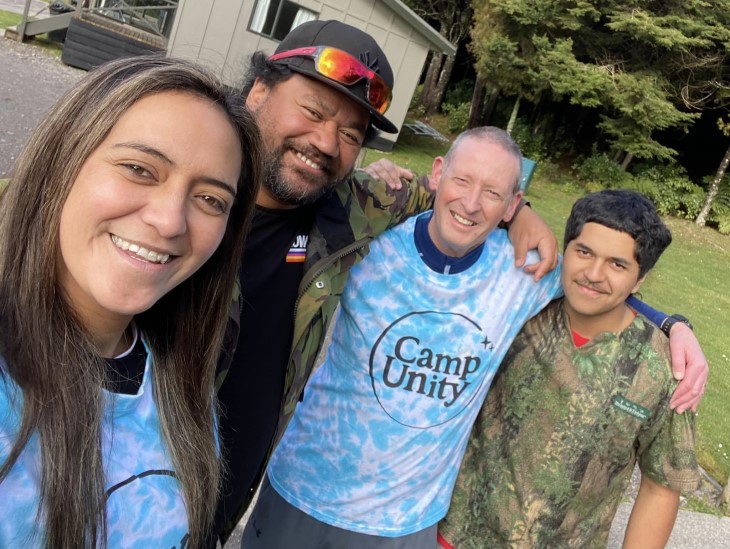
Te Rina co-founded Camp Unity, which provides support to young carers whose whānau have been impacted by injury.
Te Rina’s advice for health providers and suppliers
- Ensure your organisation is ready for change. Governance, executive and senior leadership levels will need to be supportive and ready to embark on this journey as they incorporate new ways of working.
- Establish an executive Māori leadership role to lead the mahi and support any frontline kaimahi Māori as those positions can be isolating.
- Engage with mātauranga Māori expertise and whānau Māori with lived experience, remembering that whatever they share with you is a taonga (gift) and should be treated as such. It’s difficult reliving that mamae (hurt) and trauma to support the growth of an organisation. You may need a minimum of two whānau with lived experience involved to ensure they feel safe.
- Be open and transparent with the current state of your environment for policies, processes, procedures, systems, communications and the kiritaki and whānau journey. Ensure this is reviewed from the perspective of whānau Māori journeying through your service.
- Develop your plan with strong engagement from kaimahi and ensure it’s well-resourced to support the actions.
- Develop an escalation process to assist with the removal of barriers.
- Focus on building the foundation of cultural safety amongst kaimahi to ensure the improvement mahi is sustainable.
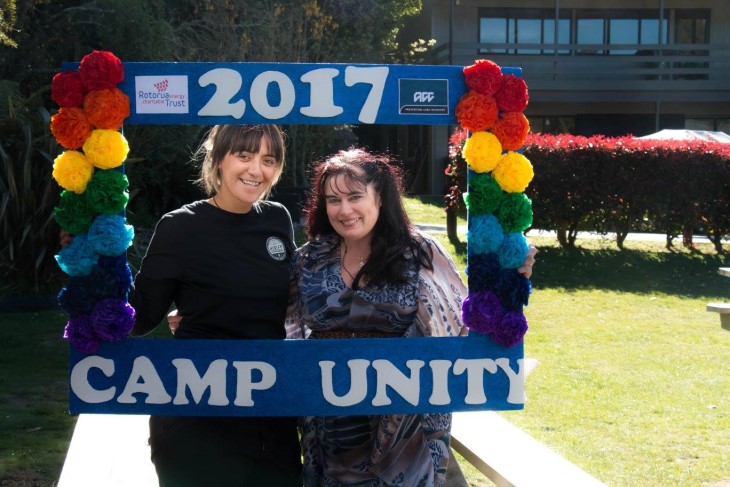
Te Rina with her Camp Unity co-founder Phoenix Rain.
Share your story
Do you have a cultural competency or cultural safety story to share? Reach out to our team at culturalsafety@acc.co.nz
Mental health – Where to get help
If it’s an emergency and you or someone else is at risk, call 111.
For information and support:
Lifeline: Call 0800 543 354 or text 4357 (HELP)
Suicide Crisis Helpline: Call 0508 828 865 (0508 TAUTOKO)
Need to talk? Call or text 1737
Depression helpline: Call 0800 111 757 or text 4202
All services are free and available 24/7.
For more information and support, talk to your local doctor, hauora, community mental health team or counselling service.
The Mental Health Foundation has more helplines and service contacts on its website.
Mental Health Foundation - Helplines and local mental health services




